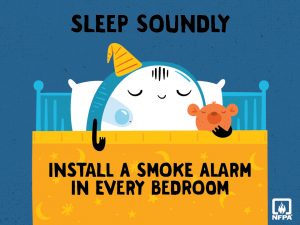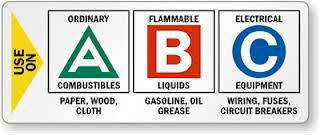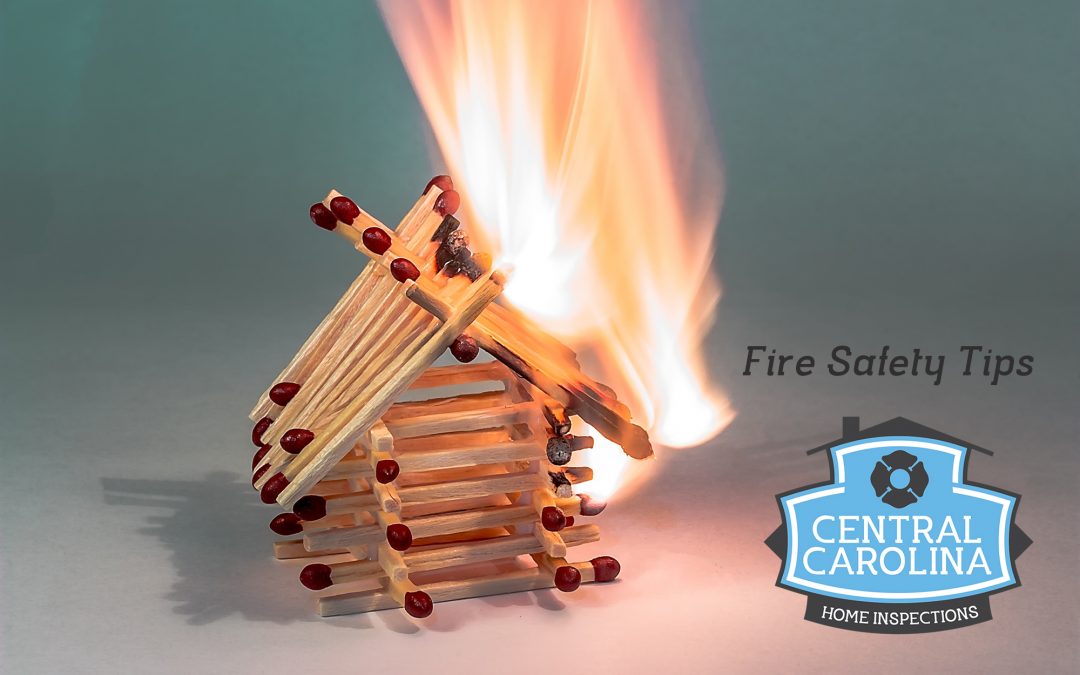The North Carolina Office of the State Fire Marshal posted a press release on December 10th, stating that the year 2018 was, “one of the deadliest years on record for fire fatalities in North Carolina”. 133 people lost their lives in North Carolina as a direct result of fire, an increase of 50 deaths from 2017. In most of these fires, a working smoke alarm was not present. As a full time firefighter, I feel it is my duty to pass on some simple, but absolutely critical fire safety tips which will keep your home and family safe.
Smoke Alarms
The NFPA (National Fire Protection Association) says that a working smoke detector can reduce the chances of a loss of life event during a fire by 50%. Smoke detectors are affordable and easy to install. If you need assistance obtaining or installing a smoke detector your local fire department may be able to provide assistance.
 Smoke Detectors should be installed on every level of the residence, plus one inside and outside EVERY bedroom.
Smoke Detectors should be installed on every level of the residence, plus one inside and outside EVERY bedroom.- There are two primary types of smoke detectors: photoelectric alarms are better for detecting smoldering, or slowly burning fires, and ionization alarms are better at detecting flaming fires. Dual sensor alarms are made, and would be the best recommendation for your residence. More information about photoelectric smoke detectors is HERE and about ionization smoke detectors is HERE.
- Little known fact: Smoke Detectors Expire. Check the manufactured date on the back of the smoke detectors in your home, they should be replaced 8 to 10 years after they were produced, not from the date they were installed. If your smoke detector doesn’t have a date, I’d recommend replacing it immediately.
- Replace the batteries in your smoke detectors annually at a minimum. I recommend replacing the batteries when you change your clocks.
- You can now purchase sealed smoke detectors which don’t require you to replace the battery. These are designed to last 10 years, however if they begin to chirp that means its time for replacement.
- EVERY HOME I inspect will have a WORKING SMOKE DETECTOR before I leave. Whether this means replacing batteries or installing a new detector, I will not leave an inspected home without functioning smoke detectors.
Fire Extinguishers
Cooking Fires were the leading cause of house fires in the state in 2018. Having a home fire extinguisher accessible and following some simple tips can help keep you and your home safe in the instance of an attended cooking fire.
 For your home, purchase a multi-purpose fire extinguisher, typically denoted by the symbol ABC, which is large enough to put out a small fire, but not too heavy that it is difficult for you to handle and store.
For your home, purchase a multi-purpose fire extinguisher, typically denoted by the symbol ABC, which is large enough to put out a small fire, but not too heavy that it is difficult for you to handle and store.- Don’t store a fire extinguisher in the very back of the cabinet under your sink. It will be difficult for you to access rapidly in the even that you need it.
- If there is a grease fire on your stove and you don’t have an extinguisher nearby, DON’T PUT WATER on the fire. Instead use Baking Soda. Sprinkle a very generous amount of baking soda on the fire and it may put the fire out, or at least slow down the spread of fire long enough for you to get everybody out of the home safely.
- To use an extinguisher follow this simple mnemonic: PASS
- Pull the pin. Hold the extinguisher with the nozzle pointing away from you, and release the locking mechanism.
- Aim low. Point the extinguisher at the base of the fire.
- Squeeze the lever slowly and evenly.
- Sweep the nozzle from side-to-side.
- A portable fire extinguisher can save lives and property by putting out a small fire or containing it until the fire department arrives; but portable extinguishers have limitations. Because fire grows and spreads so rapidly, the #1 priority for residents is to get out safely.
Don’t forget to call CCHI for your home inspection needs!

